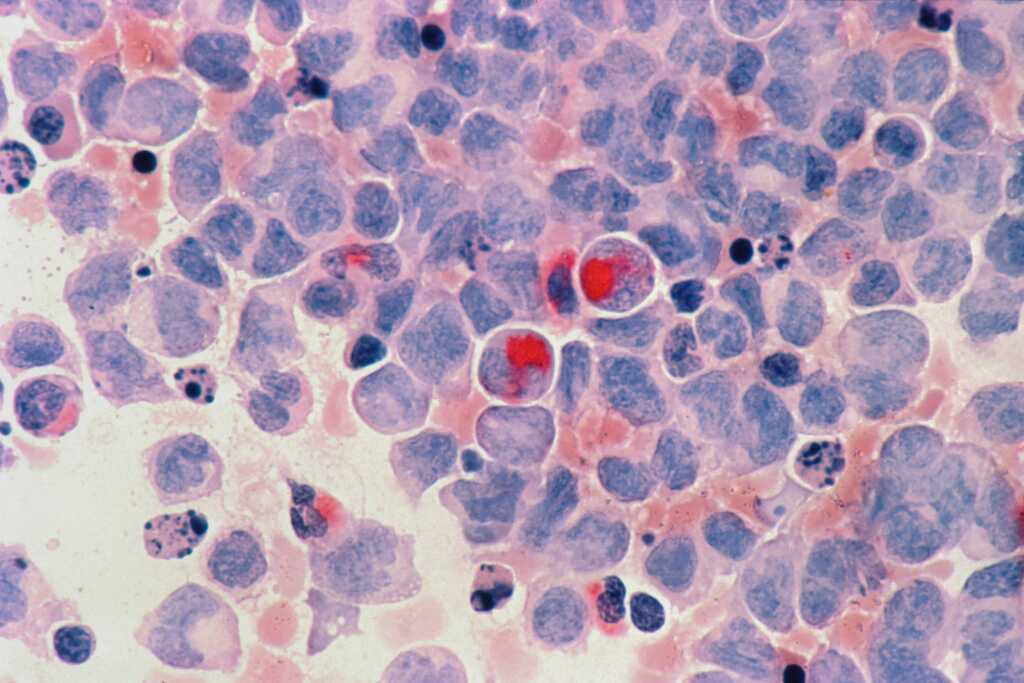A gastrointestinal medical oncologist is praising a “promising” cancer treatment study, calling the new data “very encouraging” after every participant walked away from the trial cancer-free.
Dr. Hanna K. Sanoff of the UNC Lineberger Comprehensive Cancer Center called the monoclonal antibody used to treat the patients, dostarlimab, “remarkable,” but nevertheless encouraged cautious optimism “until the results can be replicated in a larger and more diverse population.”
Listen to the latest episode of the Faithwire podcast 👇
The impressive data are the result of a small cancer treatment trial led by doctors at Memorial Sloan Kettering Cancer Center in New York City and backed by the pharmaceutical company GlaxoSmithKline. The results of the 18-person trial were first outlined Sunday in the New England Journal of Medicine.
From the study:
We initiated a prospective phase 2 study in which single-agent dostarlimab, an anti–PD-1 monoclonal antibody, was administered every 3 weeks for 6 months in patients with mismatch repair–deficient stage II or III rectal adenocarcinoma. This treatment was to be followed by standard chemoradiotherapy and surgery.
As The Times described it, the antibody treatment “unmasks cancer cells, allowing the immune system to identify and destroy them.” After completing the regimen, none of the trial participants had to seek further cancer treatment because they all had “a clinical complete response, with no evidence of tumor on magnetic resonance imaging,” according to the authors of the study.
“At the time of this report, no patients had received chemoradiotherapy or undergone surgery, and no cases of progression or recurrence had been reported during follow-up (range, 6 to 25 months),” the doctors explained. “No adverse events of grade 3 or higher have been reported.”
One of the authors of the peer-reviewed paper, Dr. Luis A. Diaz, Jr., told The New York Times, “I believe this is the first time this has happened in the history of cancer.”
While it’s not yet clear whether the patients truly are “cancer-free,” the findings are certainly encouraging, given most rectal cancer patients undergo chemotherapy, radiation, and often life-altering surgeries that bring with them serious lifestyle changes.
Knowing that is typically the case, it’s an understatement to say each of the patients in the trial were surprised to learn no further treatment was necessary, at least at this point.
Dr. Alan P. Venook, a colorectal cancer specialist at the University of California, San Francisco, told The Times it is “unheard of” for every patient in a study, all of whom had rectal cancer, to leave in remission.
He was also struck by the absence of side effects from the dostarlimab, also known as a checkpoint inhibitor, noting that 3-5% of patients typically have severe complications. Most side effects, it should be noted, are managed easily.
Venook said lack of side effects experienced by participants shows “either they did not treat enough patients or, somehow, these cancers are just plain different.”
An oncologist at Memorial Sloan Kettering Cancer Center, Dr. Andrea Cercek, one of the study’s authors, recounted “a lot of happy tears” when the study’s stunning results were shared with the cancer patients.
Dr. Kimmie Ng, a colorectal cancer expert at Harvard Medical School, echoed Sanoff’s cautious optimism, urging further research but commending the just-released data as “remarkable” and “unprecedented.”
Sarnoff, for her part, said the results of the first 12 of a planned 30-person trial are “remarkable and exceed what we would expect with the standard chemotherapy plus radiation.”
“Although quality of life measures have not been reported yet,” she added, “it’s encouraging that some of the most difficult symptoms, such as pain and bleeding, all resolved with the use of dostarlimab.”
There is a great deal more to learn here, but it is certainly encouraging. Join us as we praise God for modern medical intervention and pray for true healing for these patients.
***As the number of voices facing big-tech censorship continues to grow, please sign up for Faithwire’s daily newsletter and download the CBN News app, developed by our parent company, to stay up-to-date with the latest news from a distinctly Christian perspective.***



